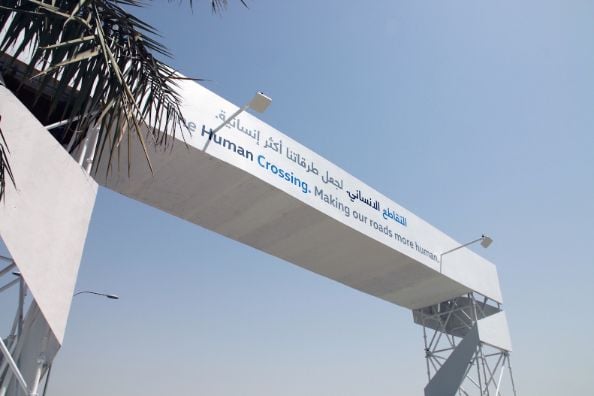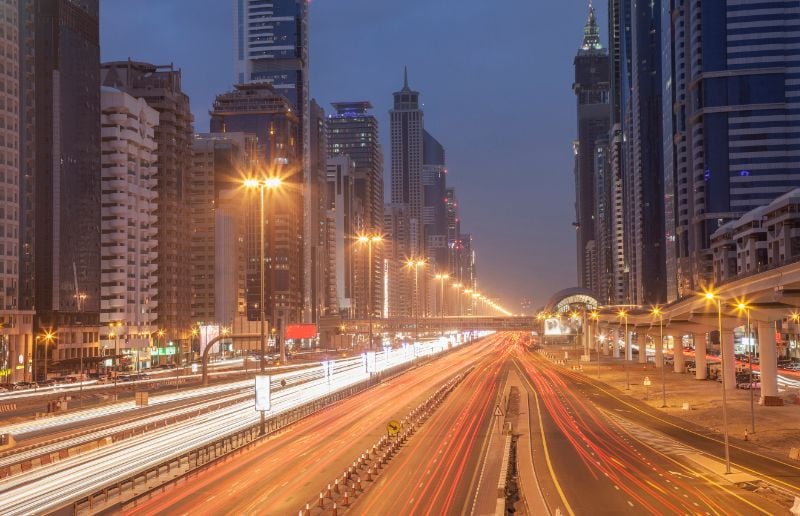The Dubai Police have recorded a total of 2,419 calls and 250 accidents on the first day of Ramadan.
Lt Colonel Khazraj Majed Al Khazraji, Director of the Command and Control Centre said: “Yesterday [Monday], The Dubai Police Command and Control unit received 2,419 emergency calls and reported 250 traffic accidents, two of which were serious, all between 2.30pm until 7.30pm.”
Fasting has quite the physical effect on the body, and when combined with the summer heat can lead to dehydration, distracting hunger and low blood sugar, which can affect our reaction speeds, alertness, concentration and sight.
In addition to fasting, the unusual and irregular meal timings and sleep patterns can cause fatigue, impatience and distraction.
Right before the sun sets, motorists will be rushing home to be with their loved ones for Iftar, meaning those of us on the roads must be wary of other drivers.
Colonel Saif Muhair Al Mazrouei, Director of the Dubai Police Traffic Directorate said: “We urge motorists not to rush as this puts them, their family and others at risk.
Read: An Introduction To The Holy Month Of Ramadan
“Drivers should adhere to the speed limits and maintain a safe distance and drive safely, especially during the Holy Month of Ramadan.”
Al Mazrouei also called on members of the public to monitor violators of traffic regulations on the roads using the Dubai Police App, or alternatively through the toll-free number 800 4353 (not while you’re driving though, of course).
Read: Your Ramadan Guide To The Best UAE Iftars And Suhours
The main cause of accidents during Ramadan has been listed as over-speeding, with the Ministry of Interior reporting six road fatalities and 39 injuries in just the first four days of last year’s Ramadan.
Al Mazrouei also mentioned how Dubai road fatalities in the first four months of 2016 shot up by almost 30 per cent, which doesn’t mean to say that the level of driving in Dubai has gotten worse, but still, be extra careful.
Read: These New Ramadan Hours Could Affect You
Eight tips for staying safe on the roads during Ramadan:
- If you feel tired before driving, try and take a short nap, or use public transport.
- If you feel sleepy while driving to the point of distraction, pull over immediately and rest.
- Be more courteous with other road users, and leave plenty of space between yourself and the car in front.
- Try to avoid the roads before the Iftar rush. If you can’t, be extra wary – some of the road users will be looking to rush home to break their fast.
- Allow yourself plenty of time before you set out for a journey – being safe is worth being late!
- Keep yourself visible – make sure your headlights, tail lights and signal lights all work properly. Turn on your headlights shortly before the sun sets.
- It should go without saying, but follow the rules of the road – sudden merging or swerving will not only endanger yourself, but other drivers too.
- Road safety doesn’t just apply to drivers. Pedestrians and cyclists should be wary when using crossings, even if the light is green!
The Dubai Police aren’t the only ones looking out for road safety though. Volkswagen Middle East have launched the road safety campaign The Human Crossing.
According to the Abu Dhabi Police, 20 per cent of all traffic accidents in the UAE involve a pedestrian. To highlight this issue, Volkswagen have implemented an arch over a pedestrian crossing outside of Gems Wellington Academy Silicon Oasis, which shows the name of individual students crossing beneath it – giving an identity to each pedestrian and reminding motorists that the individual crossing could be their family, friend or neighbour.
Here it is:


– For more about the Dubai fashion scene straight to your newsfeed, follow us on Facebook












